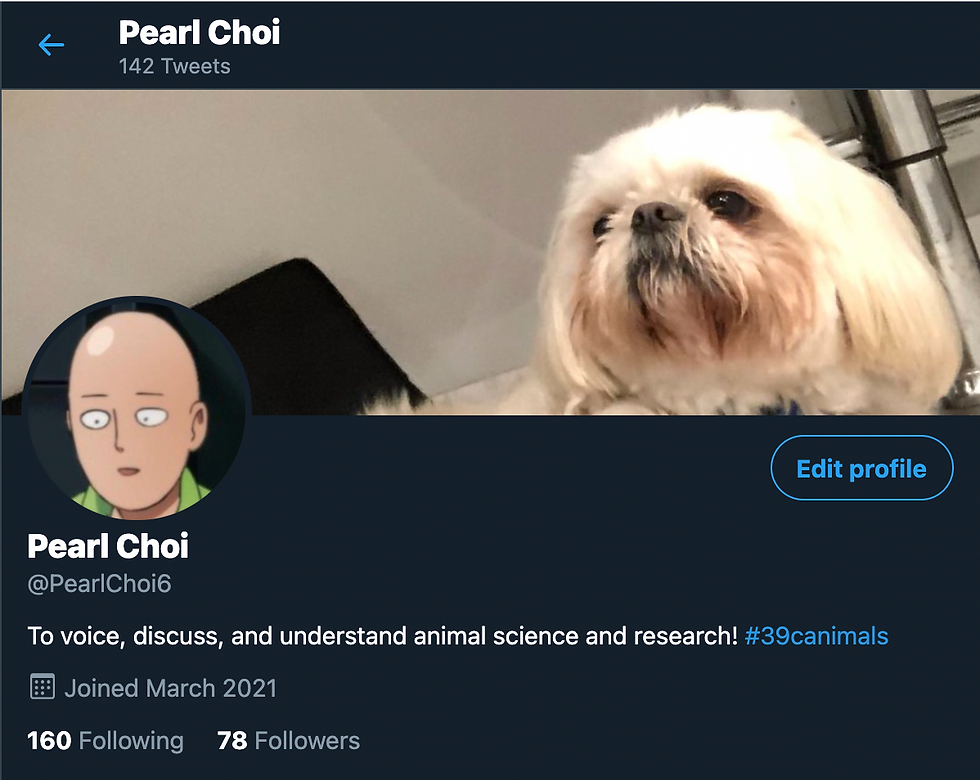Life's a Popularity Contest (Yes, Even for Animals)
- pearlsc
- Apr 21, 2021
- 2 min read
I feel like a boiling kettle pot right now because I'm honestly losing steam on Twitter as my feed gets diluted with a number of things, but I must carry on! Here's a Calvin and Hobbes comic strip I want to share!

One of the big things I found important to discuss over was conservation bias between endangered species that are widely known, popular, and cute versus the lesser known and tad uglier. National Geographic writer, Christine Dell'Amore (@cdellamore) recently tweeted about this, labeling this unfortunate trend as the "conservation limelight". Conservation is already an underfunded effort and it's a waste to have to allocate resources to certain species for the sake of "people just like it more". It's come down now that the more effective ways to tackle endangered species is less focusing on individual charismatic animals and more encompass whole ecosystems to save more of them.
To supplement this popularity contest conservation conundrum, I came across an interesting article called "Why Do We Care How Smart Animals Are?". Right from the get go with the title I already started second guessing myself and pondered over that question. Why the hell do we judge animals' intelligence? Does that make me think less of an animal? More? After watching the "Bird Brain" documentary, I was pleasantly surprised to see the author of this article Sigal Samuel had gave a personal anecdote about meeting a mallard named Molly that flipped his perspective on avian intelligence and then as a whole animal intelligence. The article dives into discussions about biases, animal rights, and even philosophy related conversations that now start to bring in sentience in relation to how we treat animals. Discussions about assigning moral value in animals is frankly still a relatively new concept, so it shouldn't come off as a surprise if people find themselves more likely to care about a certain animal if that animal is at least considerably intelligent. But at the same time, Samuel makes a valid conclusion stating: "We can remind each other that if we only care about animals that appeal to us, we’re going to end up harming all animals, including ourselves".
Anyways, did you know otters can get COVID? Oddly enough, I learned of this small incident from a Japanese animal welfare/news account that shared about an otter at a Georgia Zoo testing positive for it. Though it was a mild case, it's still valuable information to keep in mind for the long run for our animal friends! I've picked up learning Japanese as a result of quarantine and wanted to at least find some practice by following a Japanese account about animals. To engage with their tweet, I made a small QRT (quote retweet) roughly expressing: "Animals' lives and health also have to be protected!"




Comments